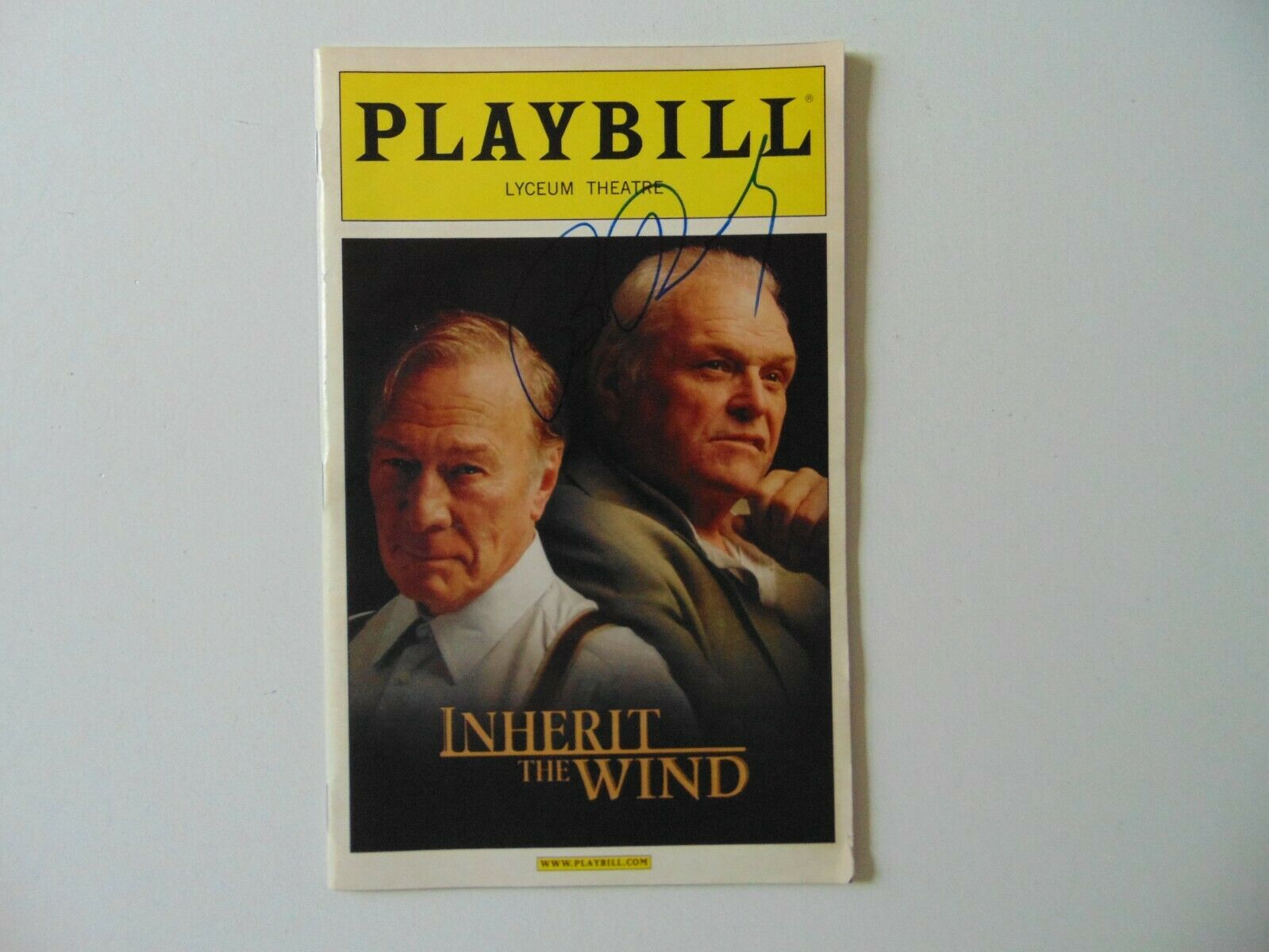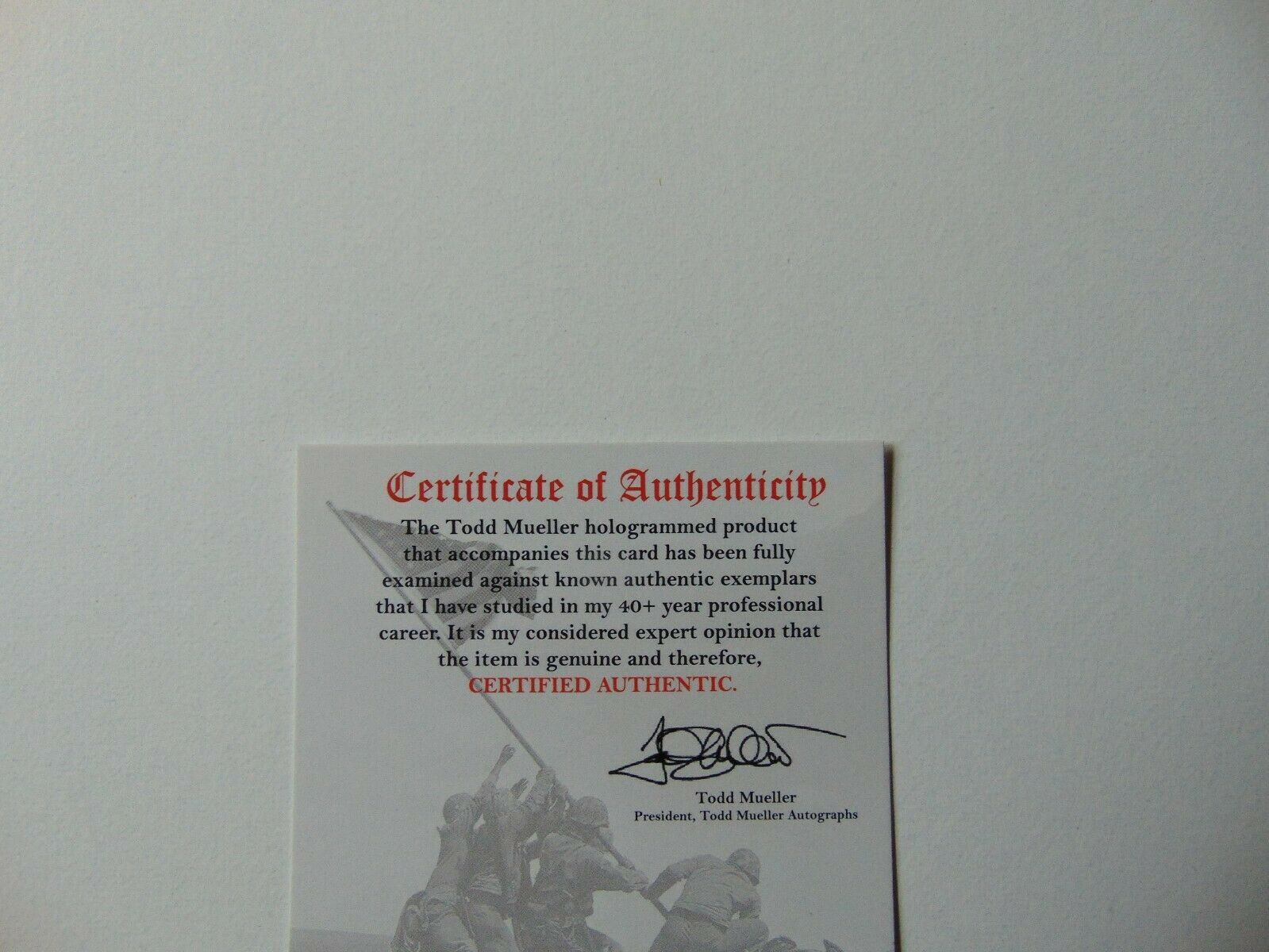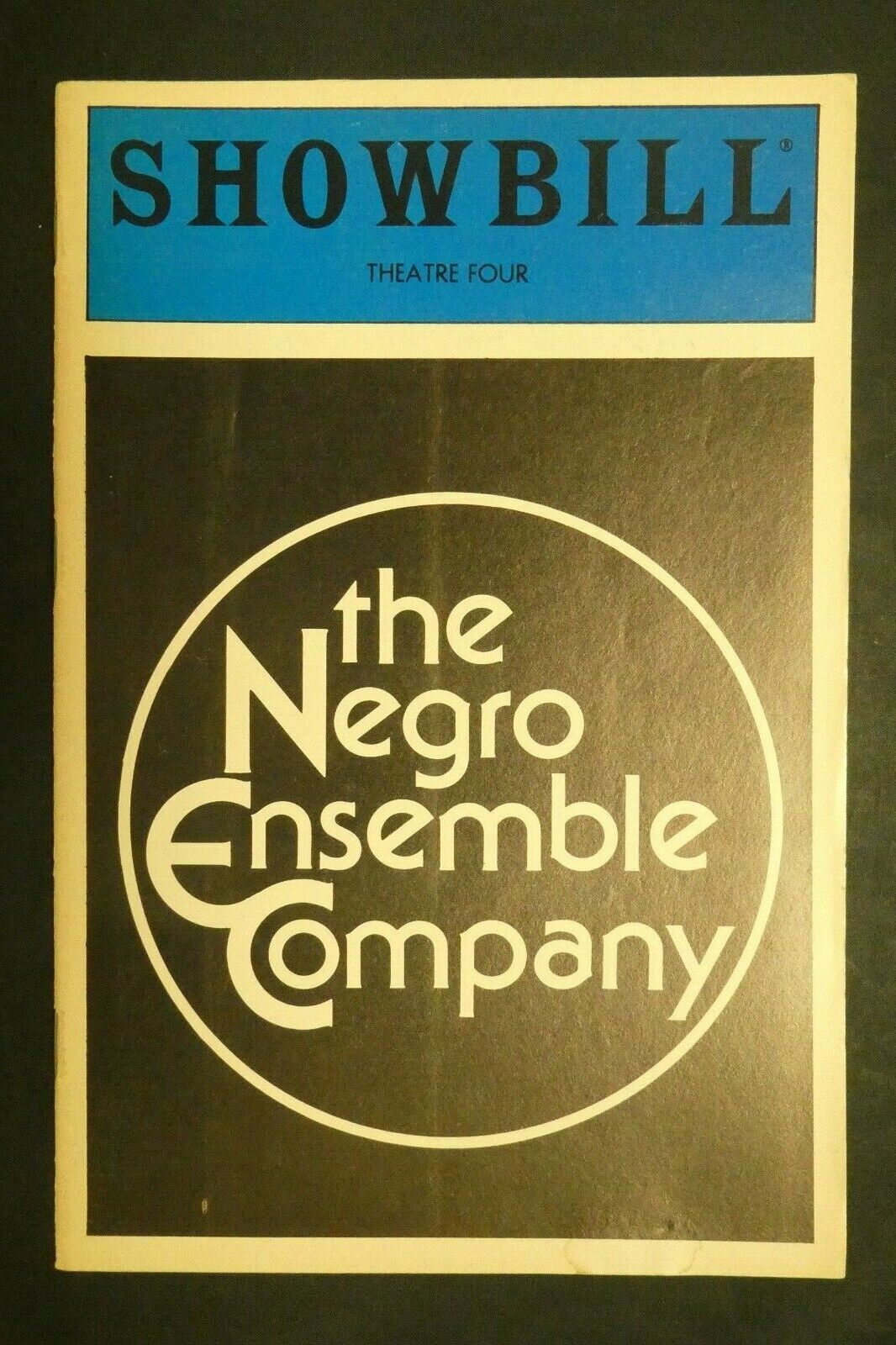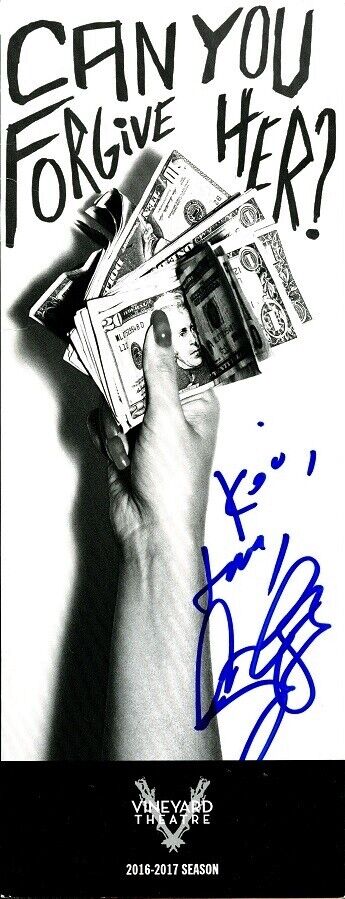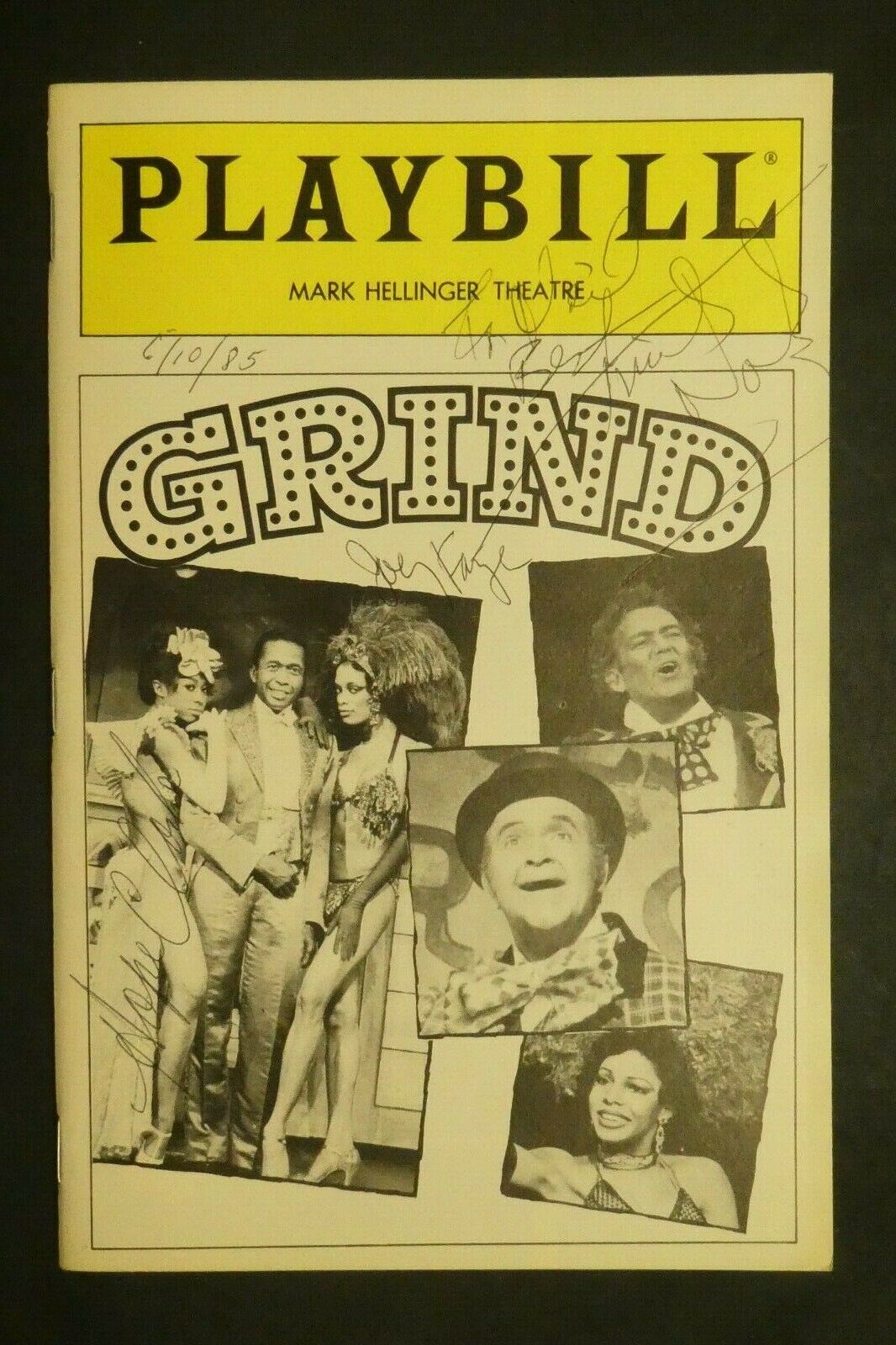-40%
"Inherit the Wind" Cast Signed (X20) Brian Dennehy Playbill Todd Mueller COA
$ 73.91
- Description
- Size Guide
Description
Up for auction"Inherit the Wind" Cast Hand Signed Playbill. Signers are;
Brian Dennehy, Beth Fowler, Anne Bowles, Steve Brady, Bill Buell, Conor Donovan, Sherman Howard, Katie klaus, Maggie Lacey, Jordan Lage, Mary Kate Law, Philip LeStrange, Kevin C Loomis, Charlotte Maier, Jay Patterson, Scott Sowers, Erik Steele, Jeff Steitzer, Henry Stram, Benjamin Walker and Andrew Weems.
This item is certified authentic by Todd Mueller Autographs and comes with their Certificate of Authenticity.
ES-1591
Inherit the Wind is an American play by Jerome Lawrence and Robert E. Lee, which debuted in 1955. The story fictionalizes the 1925 Scopes "Monkey" Trial as a means to discuss the then-contemporary McCarthy trials. Inherit the Wind is a fictionalized account of the 1925 Scopes "Monkey" Trial, which resulted in John T. Scopes' conviction for teaching Charles Darwin's theory of evolution to a high school science class, contrary to a Tennessee state law. The role of Matthew Harrison Brady is intended to reflect the personality and beliefs of William Jennings Bryan, while that of Henry Drummond is intended to be similar to that of Clarence Darrow. Bryan and Darrow, formerly close friends, opposed one another at the Scopes trial. The character of E. K. Hornbeck is modeled on that of H. L. Mencken, who covered the trial for The Baltimore Sun, and the character of Bertram Cates corresponds to Scopes. However, the playwrights state in a note at the opening of the play that it is not meant to be a historical account, and there are numerous instances where events were substantially altered or invented. For instance, the characters of the preacher and his daughter were fictional, the townspeople were not hostile towards those who had come to Dayton for the trial, and Bryan offered to pay Scopes' fine if he was convicted. Bryan did die shortly after the trial, but this occurred five days later, in his sleep. Political commentator Steve Benen said of the play's inaccuracies: "Scopes issued no plea for empathy, there was no fiancee and the real Scopes was never arrested. In fact, the popular film that was nominated for four Academy Awards and has helped shape the American understanding of the 'Scopes Monkey Trial' for decades is an inadequate reflection of history."[6] Lawrence explained in a 1996 interview that the drama's purpose was to criticize the then-current state of McCarthyism. The play was also intended to defend intellectual freedom. According to Lawrence, "we used the teaching of evolution as a parable, a metaphor for any kind of mind control [...] It's not about science versus religion. It's about the right to think."
